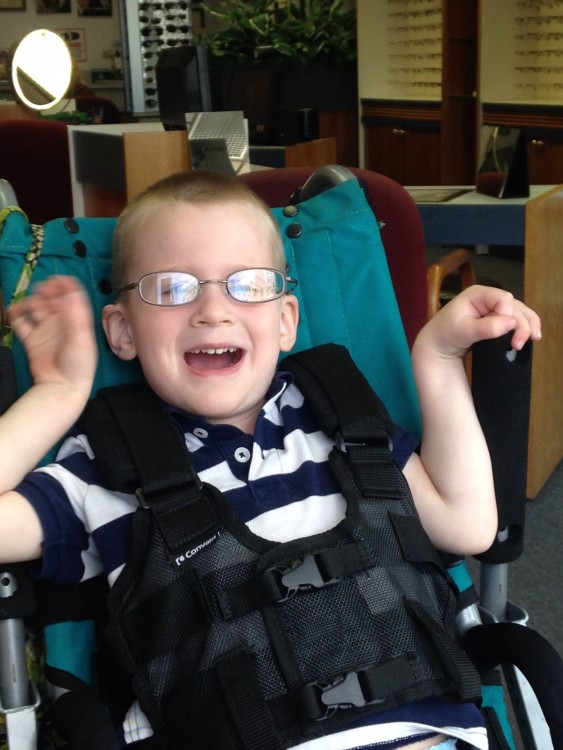I see you there. The look of judgment on your face tells me everything. Many people have given me this look before. The “why can’t/won’t you control your child” look. Trust me, I am used to it. I can’t begin to tell you all the times someone has come up to me in public and commented on my parenting, or worse, tried to show me how to discipline my son. Mostly people point, stare and whisper. What you don’t know is that my son is not spoiled or out-of-control. Yes, my almost 6-year-old is riding in the cart. He cries frequently while we’re out, though not because he wants a treat. My son has a condition called cerebral palsy.
Cerebral palsy is the most common physical disability of childhood. It is caused by brain injury, which can occur before, during or after birth. Some studies have suggested that nearly 7 percent of children with cerebral palsy had also been diagnosed with autism spectrum disorder. Some children with this condition experience severe symptoms and don’t live independently, while others achieve independence through therapy regimes and dedicated teachers, therapists and relatives. My son falls into the latter category.

He has a mild form of spastic (high muscle tone) cerebral palsy. He uses braces called ankle-foot orthotics to walk without hurting himself. He experiences pain, visual impairments, daily seizures, and he is also co-diagnosed with autism. As you can understand, going to the grocery store can be difficult. Most stores do not have grocery carts that can comfortably fit my child and my groceries. These types of carts do exist, but many stores will not purchase them. So I do what I need to get through the store as quickly as possible. I need groceries, clothing and other things from the store, too. Using the cart for my child and what I am buying is a necessity, not a choice.
You look and see a child who is “old enough to walk.” I look in the cart and see my child who is exhausted from therapy and possibly recovering from yet another seizure, which affects his ability to walk. You see a child stimming, hand flapping, or sucking his thumb and may think he is acting like a baby. I see a child who is not flipping out, melting down or otherwise being a public disturbance.
So next time you see a mother, father or grandparent with a child you deem “too old” to act a certain way, you might consider just moving along. Many disabilities are hidden. You can’t see cerebral palsy, brain damage, seizures, intellectual disabilities or autism. We need to go to the store, too. Usually we are doing the best we can, and honestly, we need your support, not pointing and whispering. We are trying to raise a child who will function within the greater world someday. We just have to do things a little slower and take one day, one trip in the community, or even one aisle at the grocery store at a time.
The Mighty is asking the following: Write a letter to anyone you wish had a better understanding of your experience with disability, disease or mental illness. If you’d like to participate, please send a blog post to community@themighty.com. Please include a photo for the piece, a photo of yourself and 1-2 sentence bio. Check out our Submit a Story page for more about our submission guidelines.
